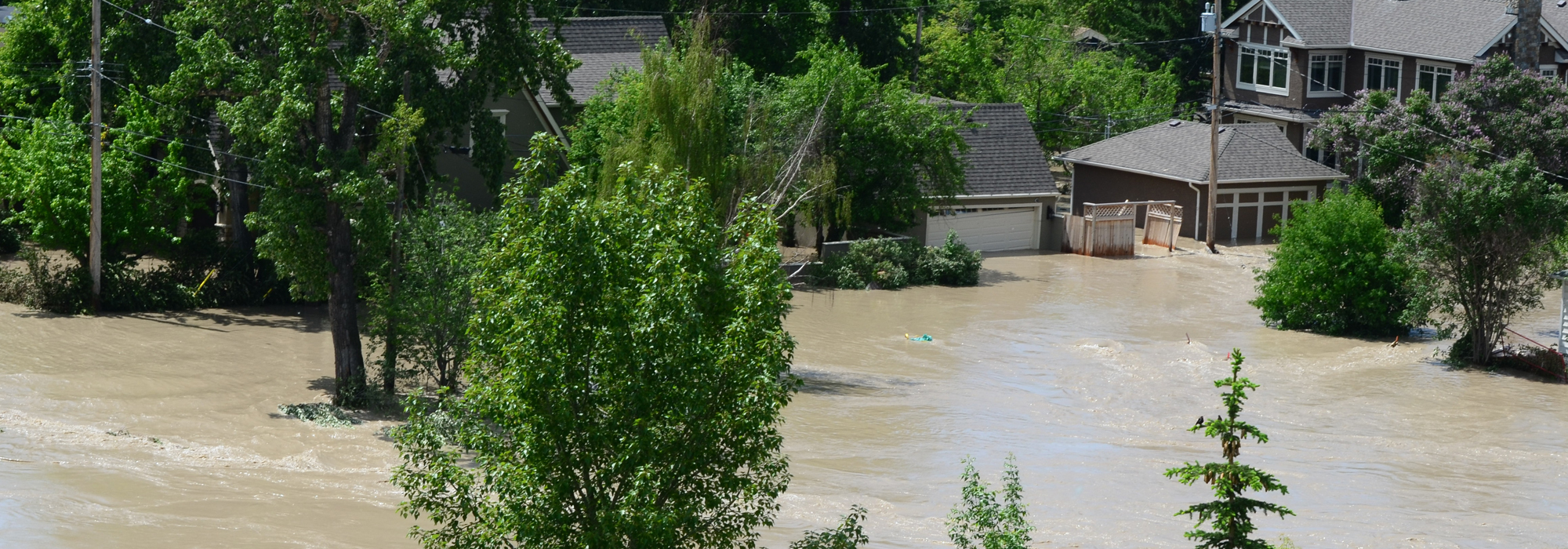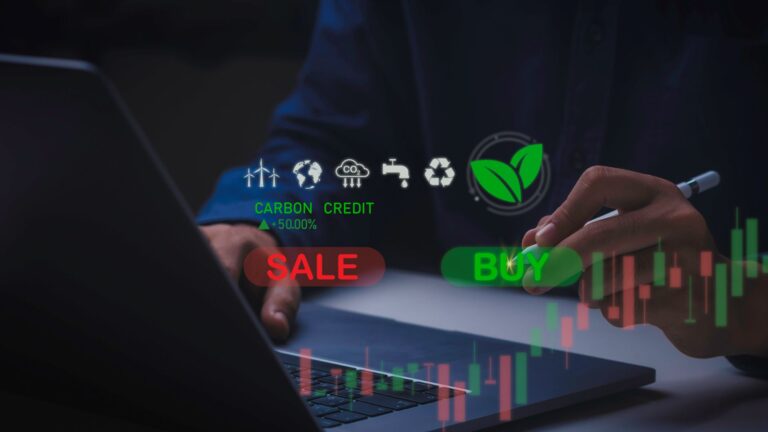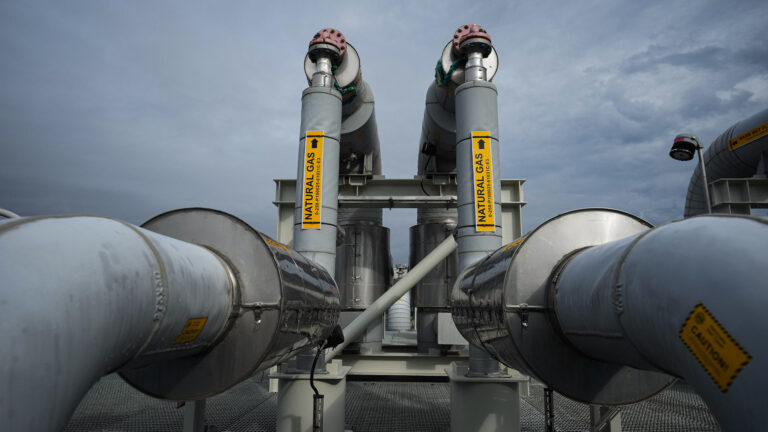Oil companies used to deny that the product they sell causes climate change; now they deny what climate change means for future sales of their product — or, at least, some of them don’t want to talk about it to their shareholders. So it might be time for the federal government to set some ground rules.
On the same day that the world’s largest private asset manager, BlackRock, called on companies to be more forthright about the risks to their business posed by climate change, Imperial Oil, the Canadian arm of ExxonMobil, downplayed those risks to its shareholders.
In the 149 pages of financial and shareholder reports Imperial Oil sent to its shareholders in advance of its 2017 annual general meeting, the words “climate change” appear only twice and “greenhouse gases” only three times. The section on climate risk to the company’s business model is short and vague:
International accords and underlying regional and national regulations covering greenhouse gas emissions continue to evolve with uncertain timing and outcome, making it difficult to predict their business impact. Imperial’s estimate of potential costs related to possible public policies covering energy-related greenhouse gas emissions are consistent with those outlined in ExxonMobil’s long-term Outlook for Energy, which is used as a foundation for assessing the business environment and Imperial’s investment evaluations.
This statement stands in sharp contrast to Chevron’s most recent filing with the US Securities and Exchange Commission (SEC), which has a long section beginning, “Regulation of greenhouse gas (GHG) emissions could increase Chevron’s operational costs and reduce demand for Chevron’s hydrocarbon and other products.” Climate change regulation “could have the impact of curtailing profitability in the oil and gas sector or rendering the extraction of the company’s oil and gas resources economically infeasible,” and the company noted that “increasing attention to climate change risks has resulted in an increased possibility of governmental investigations and, potentially, private litigation against the company.”
The latter point is likely inspired by Exxon’s predicament. It faces several challenges:
- An investigation by the New York State attorney general into “what Exxon knew about climate change and what it told shareholders and the public” has grown to include “relatively recent statements by ExxonMobil related to climate change and what it means for the company’s future…[and whether] ExxonMobil will have to leave much of its oil in the ground, which means the company’s valuation of its reserves is off by a significant amount.”
- The SEC is investigating how Exxon “has valued its oil reserves in the wake of low prices and potential curbs on carbon emissions.” Possibly in response to this pressure, Exxon wrote down 4.3 billion barrels of reserves in 2017, including the entire 3.5 billion barrels of bitumen in its new Kearl tar sands mine and 0.2 billion barrels at its Cold Lake tar sands facility (2.8 billion barrels of those reserves belong to its Canadian subsidiary Imperial Oil, which also wrote them down).
- A class-action lawsuit in Texas claims Exxon failed “to disclose the risks posed to its business by climate change” in order to inflate its stock price.
Imperial explicitly cites ExxonMobil’s Outlook for Energy report to downplay the risk to the corporate bottom line posed by policy action on climate change. The basic argument in the report and in the related Exxon document Energy and Carbon: Managing the Risks is that fossil fuels will continue to dominate the energy mix because governments won’t bring in strong climate regulations. In Exxon’s words:
Our Outlook for Energy does not envision the “low carbon scenario” advocated by some because the costs and the damaging impact to accessible, reliable and affordable energy resulting from the policy changes such a scenario would produce are beyond those that societies, especially the world’s poorest and most vulnerable, would be willing to bear, in our estimation.
But does Exxon’s Outlook for Energy use reasonable assumptions? The new Forecasting Failure report prepared by Greenpeace and Oil Change International examines how energy models produced by Exxon, Shell and BP are constructed and highlights their central weakness: by extrapolating existing trends, they tend to predict that the future will be just like the present, while masking underlying potential for disruption. The report
- reveals the poor track record of oil company forecasting;
- exposes the unlikely assumptions built into the forecasts; and
- examines the consequences of these forecasts for investments and for climate change.
It finds that the companies are highly vulnerable to disruption by clean energy technologies, and that their forecasts are playing an unhelpful role in the climate debate.
In Imperial’s case, assuming lack of government action on climate change is particularly wrong-headed. The majority of its current and planned production is in the Alberta tar sands, where the provincial government has announced a higher carbon price and a cap on greenhouse gas emissions from oil . Imperial was the only major oil company to not support this policy package.
Furthermore, the federal government has signed on to the Paris Agreement goal of limiting warming to well below 2 degrees Celsius. In the International Energy Agency’s scenario that has a 66 percent chance of keeping warming below 2 degrees, half of global oil reserves are “unburnable.” The demand for oil in this scenario drops to 40 percent below current levels in 2040, and by over 55 percent by 2050.
These are the kinds of things that your shareholders might be interested in hearing about. It’s also a broader concern for Mark Carney (former governor of the Bank of Canada and current governor of the Bank of England), who gave a remarkable speech in September 2015 on the financial risks posed by climate change. Carney said:
There are three broad channels through which climate change can affect financial stability:
First, physical risks: the impacts today on insurance liabilities and the value of financial assets that arise from climate- and weather-related events, such as floods and storms that damage property or disrupt trade;
Second, liability risks: the impacts that could arise tomorrow if parties who have suffered loss or damage from the effects of climate change seek compensation from those they hold responsible. Such claims could come decades in the future, but have the potential to hit carbon extractors and emitters — and, if they have liability cover, their insurers — the hardest;
Finally, transition risks: the financial risks which could result from the process of adjustment towards a lower-carbon economy. Changes in policy, technology and physical risks could prompt a reassessment of the value of a large range of assets as costs and opportunities become apparent.
With respect to the valuations of specific companies, he added, “While a given physical manifestation of climate change — a flood or storm — may not directly affect a corporate bond’s value, policy action to promote the transition towards a low-carbon economy could spark a fundamental reassessment.” More recently, the Financial Stability Board (FSB), where Carney is the chair, wrote to the G20 finance ministers and central bankers to argue that addressing climate-related financial risks should be one of the priorities for their March 2017 meeting in Baden-Baden.
A speech by Timothy Laine, deputy governor of the Bank of Canada, in early March, had followed similar themes. He warned that “while the economic costs of climate change are uncertain they are likely to be significant. In Canada alone, it has been estimated that, in the absence of action to address global warming, we would face annual costs of between $21 billion and $43 billion by the 2050s.”
Laine added that alongside carbon pricing, corporate disclosure of those risks is a big part of the solution: “All investors need to know whether and how companies are exposed to any risks associated with climate change, including the impact of policy changes. For example, will the shift to a lower-carbon economy affect an oil company’s profitability, either through tax changes or reduced demand for oil? Will certain oil reserves become uneconomic — aka ‘stranded assets’?”
It is an inconvenient truth that business models of companies like Imperial can work only in a world with catastrophic levels of global warming. That’s a gamble they may be willing to take, but given what is at stake they should be upfront with investors and the public that this is what they are doing. And given the climate fraud allegations plaguing Imperial’s majority owner, ExxonMobil, they should probably be more upfront about the risks of litigation as well.
Mark Carney and the financier Michael Bloomberg are working together through the FSB’s Task Force on Climate-Related Financial Disclosures to develop “voluntary, consistent climate-related financial risk disclosures for use by companies in providing information to investors, lenders, insurers, and other stakeholders.” The Greenpeace-Oil Change International report includes a comparative analysis of the oil majors’ current approaches to thinking about energy futures and recommends more robust ways to think about the future of energy, echoing the aims of the FSB task force.
Canada’s security regulators have taken note, and on March 21 they pledged to undertake their own review of climate disclosure in this country. Yet there is no indication that this will be more than an information-gathering exercise.
Voluntary reporting has limits, especially when companies have a strong self-interest in downplaying risks. One of the key findings of the FSB task force is that “the success of these recommendations depends on near-term, widespread adoption by organizations in the financial and non-financial sectors” and that “widespread adoption of the recommendations will require ongoing leadership by the G20 and its member countries.”
Given what is at stake in an economy like Canada’s, which has an outsized exposure to potentially stranded assets in the oil sands, our federal government should consider building on the FSB’s proposed guidelines to enact mandatory requirements. Anything less leaves us wilfully blind to the hazards of responsible investing in the age of climate change.
Photo: Shutterstock.com
Do you have something to say about the article you just read? Be part of the Policy Options discussion, and send in your own submission. Here is a link on how to do it. | Souhaitez-vous réagir à cet article ? Joignez-vous aux débats d’Options politiques et soumettez-nous votre texte en suivant ces directives.











